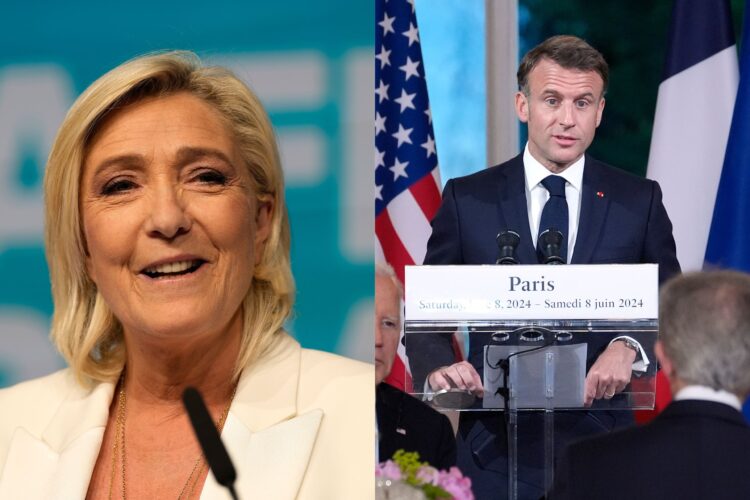Right-wing parties in Germany, France, and The Netherlands made substantial gains in the European Union parliamentary elections this week. In France, President Emmanuel Macron suffered a significant defeat, and shockingly decided to dissolve the national parliament and call for new elections. The right-of-center Rassemblement National (RN) party, led by Marine Le Pen, won 31.5 percent of the vote, while Macron’s Liberal Renaissance party picked up just 15.2 percent.
Le Pen addressed her followers, saying, “I can only welcome this decision, which is in line with the logic and architecture of the Fifth Republic.” She also appealed to anti-globalist and nationalist sentiments. The RN is known for its anti-immigration stance, skepticism of centralized European government, and nationalist tendencies. Macron’s Liberal Renaissance party advocates for centrist and pro-European-Union policies.
Learn the benefits of becoming a Valuetainment Member and subscribe today!
In Germany, the conservative alliance between the Christian Democratic Union and the Christian Social Union placed first with 30.2 percent of the vote. The Social Democratic Party (SPD) fell behind the right-wing Alternative for Germany (AfD), with the latter picking up 16 percent and the former receiving 13.9 percent of the vote. SPD, the party of Germany’s chancellor Olaf Scholz, experienced its worst result in a national election since the party was founded in 1863. The AfD, founded in 2013, is known for its nationalist, right-wing, and populist views.
Related: Germany Rules Right-Wing AfD Party is a Threat to “Democracy,” Should be Surveilled
In The Netherlands, right-wing nationalist Geert Wilders’ party, Party for Freedom (PVV), made great strides despite not winning the most seats in the election. PVV won seven seats, and the Labour/Green left-wing alliance won eight seats, according to exit polls on Thursday. Wilders told reporters, “This is a very positive sign and also a sign to the elites in Brussels that things will change.”
The European Parliament (EP) is directly elected by citizens of countries that make up the European Union, with the number of Members to the European Parliament (MEPs) from each country corresponding to their respective populations. In each country, seats are allocated based on the shares of the vote each party receives in the election.
Right-wing factions within European countries are often critical of the centralized power in Brussels, where the EU is headquartered. They seek to strengthen the national identities of their countries and oppose mass immigration. In April, Brussels law enforcement attempted to shut down a right-wing nationalist conference.


















Add comment